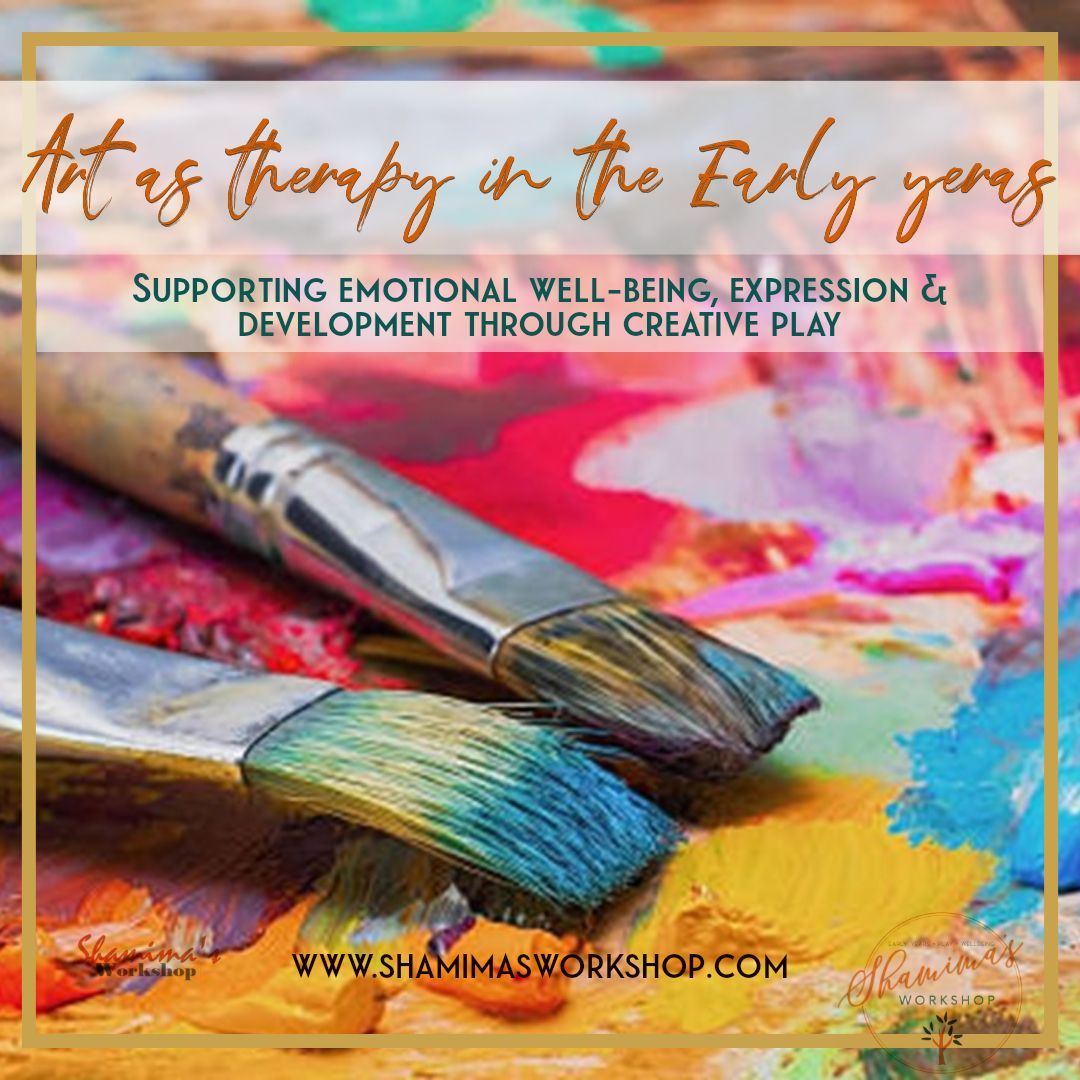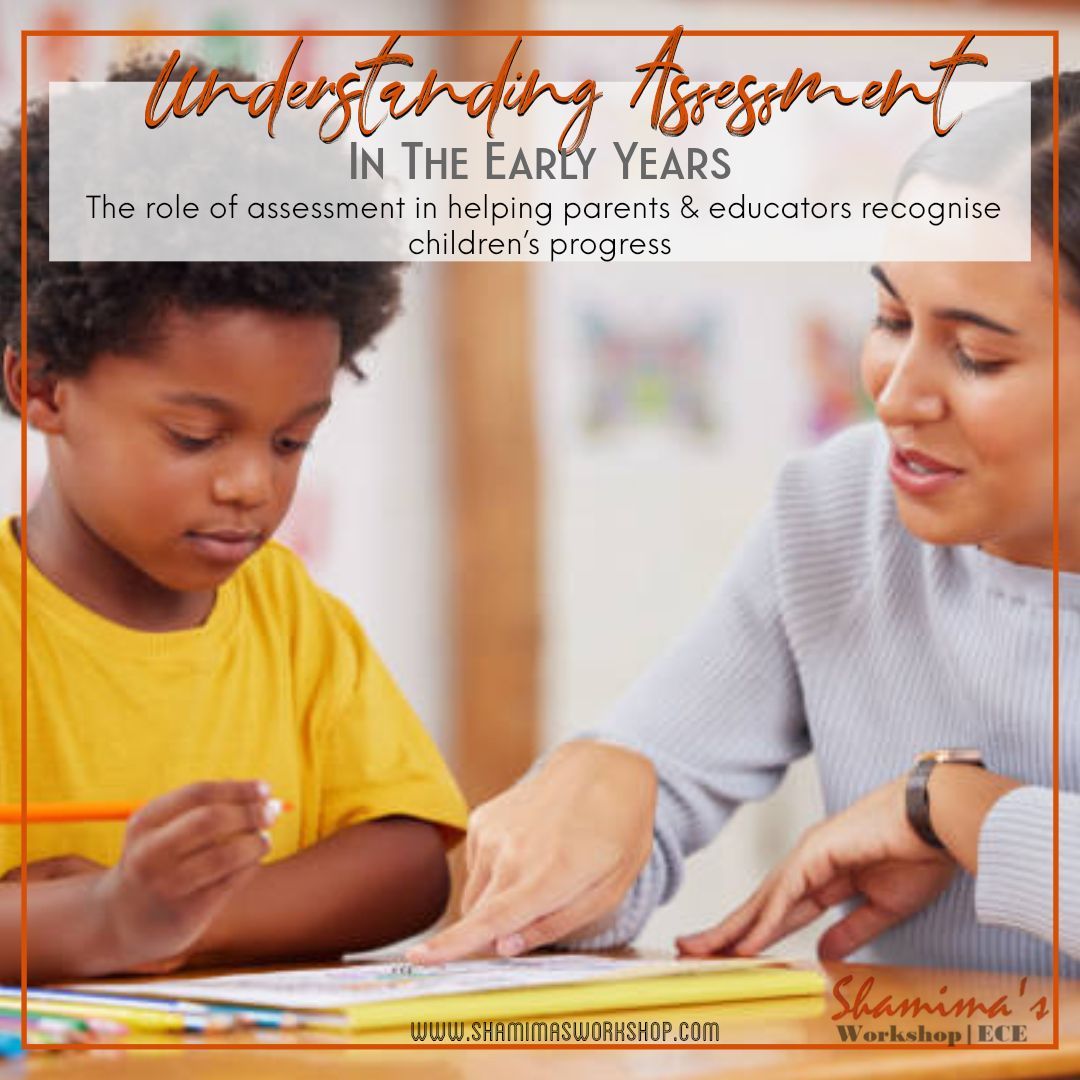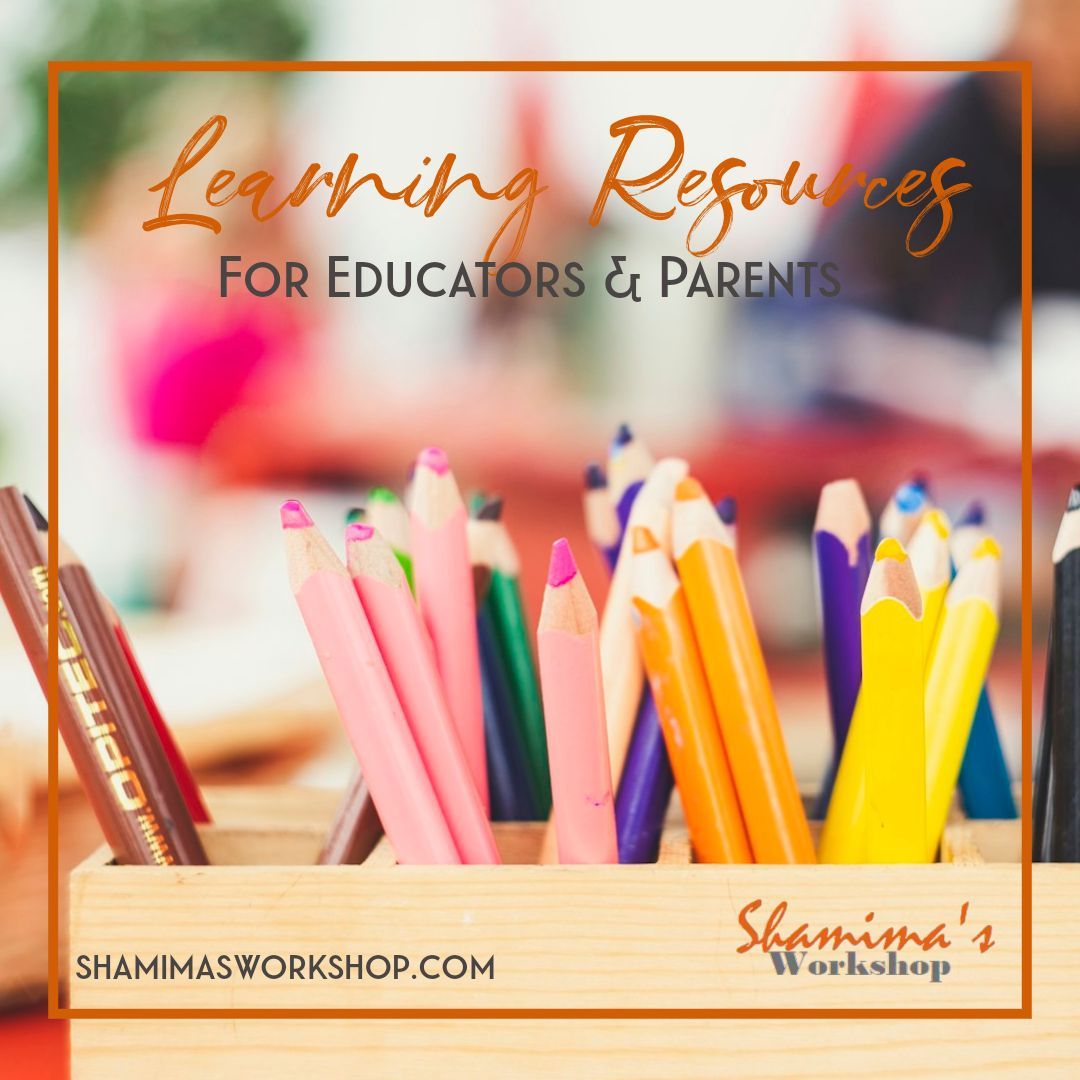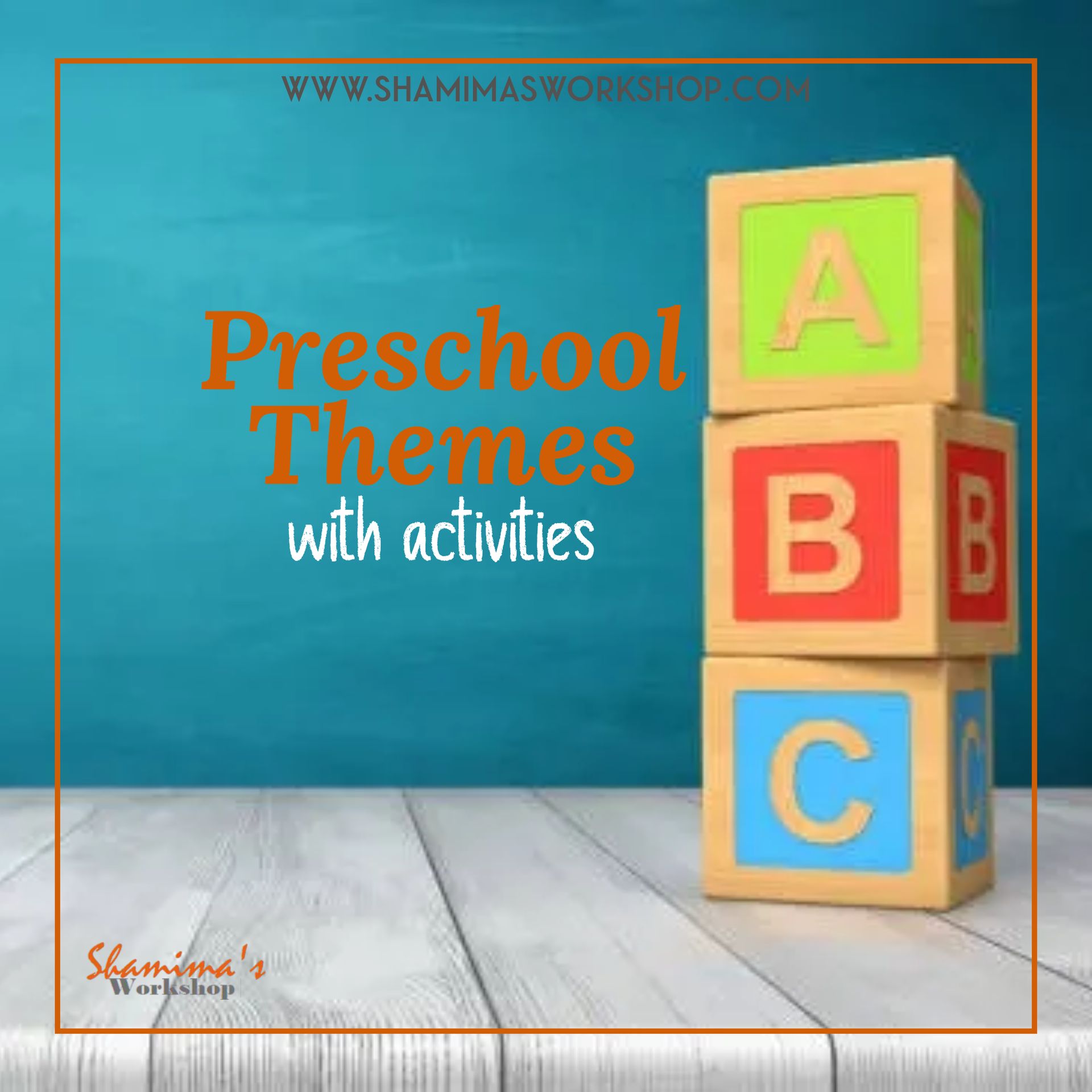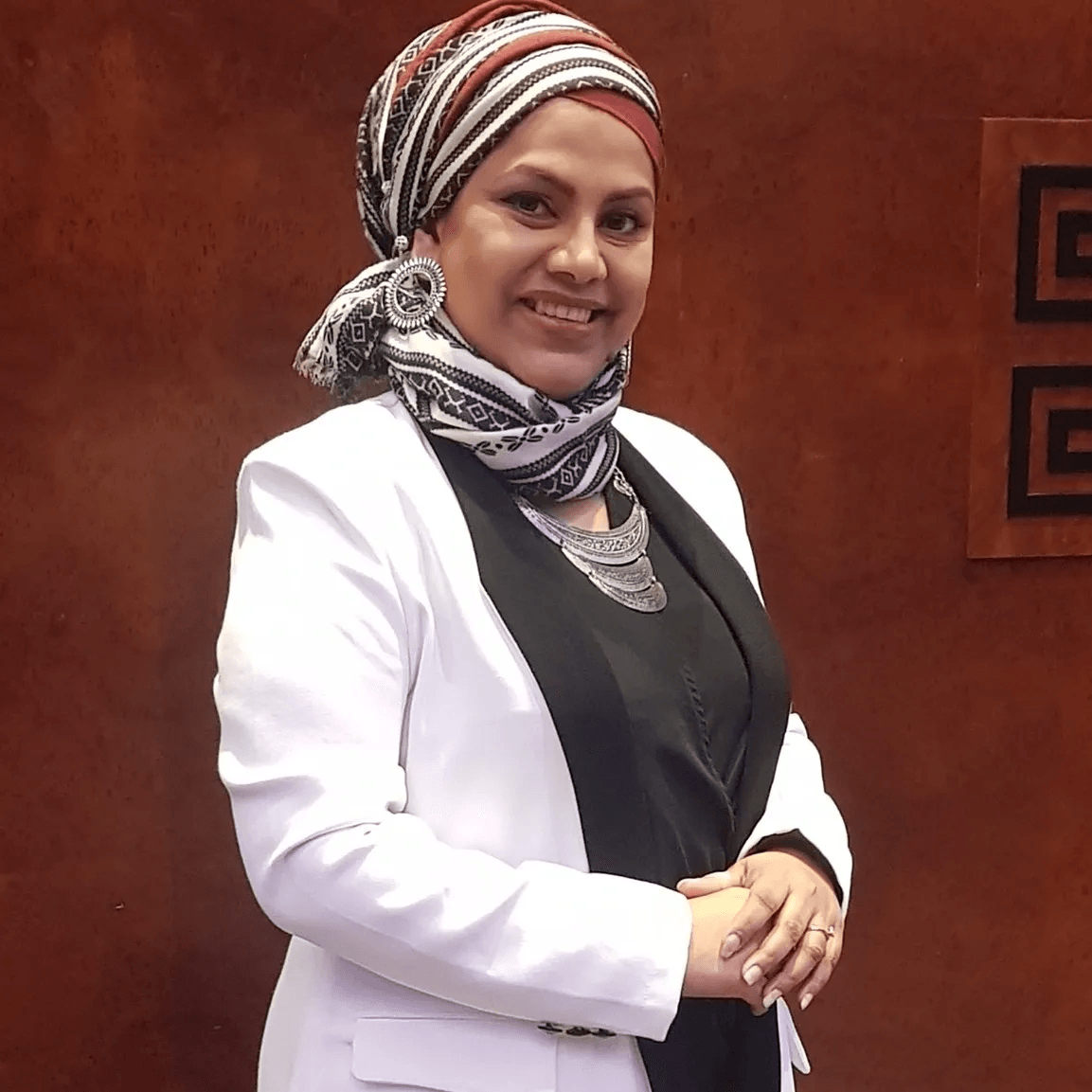School Readiness: Is your child ready for school?
IS YOUR CHILD READY FOR SCHOOL?
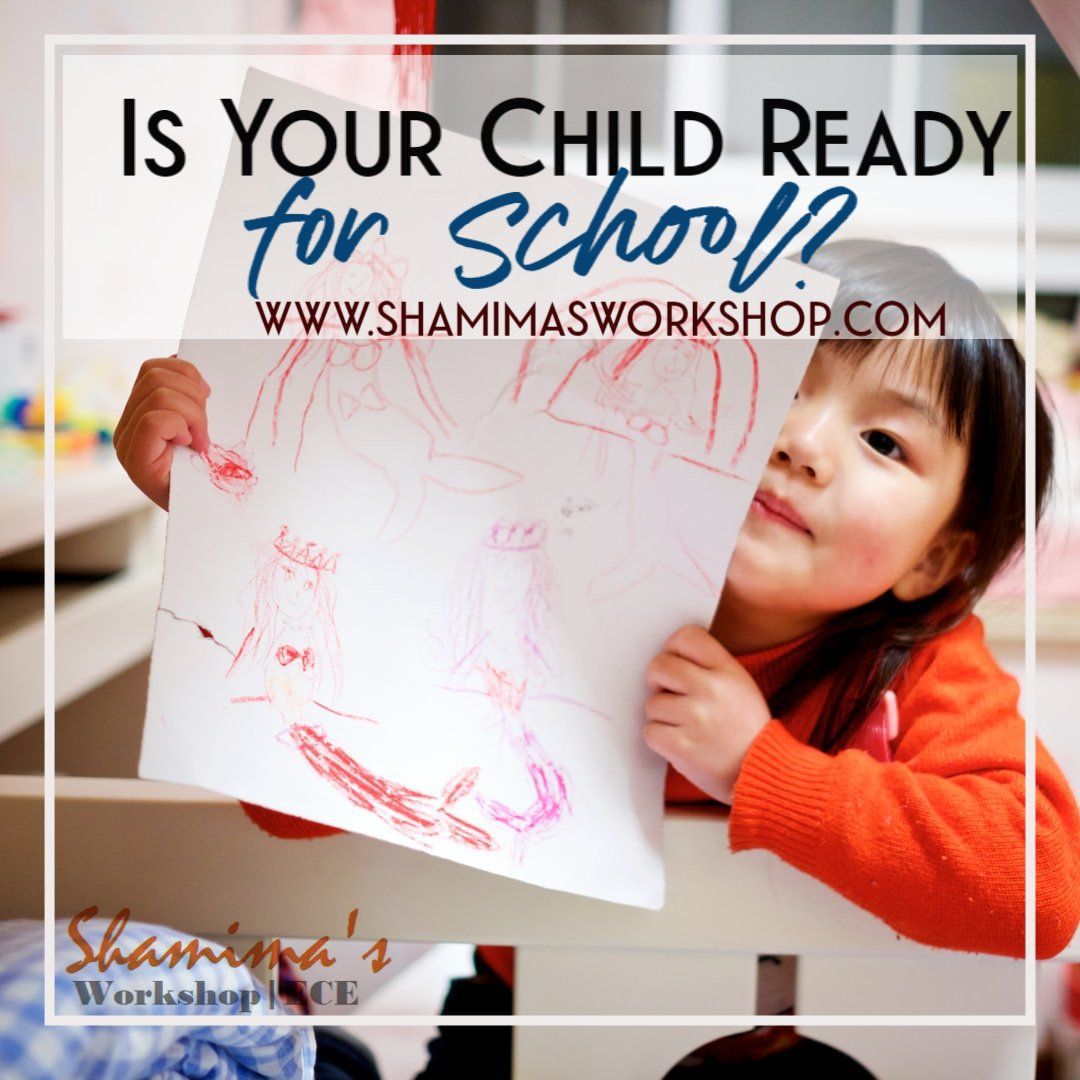
What are the characteristics of school readiness?
Have you ever thought about how do you know if a child is ready for school? How can you encourage and prepare a child for school as a parent or being an early years practitioner?
In the early years, it is very important children get ready for nursery to school transition, and this transition is called school readiness. Children like adults respond and react to things in different ways. Some children may find it easier and adapt to a new environment and adults. Sometimes children find it more difficult than others; depending on their own experiences before attending the school. It may depend on their personality and development. There are some characteristics, through that we would know that child is ready for school. The characteristics of school readiness give ideas of their skills that are needed for school starting. Let's have a look at some characteristics of school readiness.
Communication skills:
Communication skills are very important. It’s about being able to express yourself. Children get to know about their personalities. Transition to school is easier for those children who have good communication skills because they can express themselves whenever they need or require something and if something is bothering them they can express themselves. They can easily show their interests to the teachers so that teachers can plan activities according to children’s needs and interests. For example, if a child needs to go to the washroom, he can communicate his need to the teacher easily or if a child is thirsty or feeling cold or hot in the environment, he can tell how he is feeling. When children have good communication skills, they can listen and follow other instructions, they can focus and put up their attentions to the adults who are talking to them.
Therefore, children may find the transition to school easier if they have good communication skills. Good communication skills mean speaking clearly so they are understandable to others(e.g.talking to friends), understand what other people saying(e.g. the teacher's instructions), understanding simple commands or instructions, able to listen, able to take a part in a conversation.
Social skills:
Children who have good social skills may find the transition to school easier. They are able to take turns in play, engaging readily with other children in play, engage in reciprocal interaction with others(either verbally or non verbally) agreeing to share toys and materials with other children.
Emotional regulation:
A child who has the ability to perceive emotion, integrate emotion to facilitate thought, understand emotions and regulations(e.g. for a child's own responses to challenges) find the transition to school easier. They are able to separate from parents/carer, to say goodbye, and to join other children. They are able to deal with new situations and to cope with changes in routine. They are able to manage their emotions appropriately, for example, not crying when confronted with minor problems.
Self-regulation:
Self-regulation is very important for school readiness. Children who have the ability to contain frustration and temper, understand boundaries and set of rules, doing as they are told, refraining from distracting and interfering with other children will find it easier to settle into school routines.
Independence:
Children who dependence heavily on an adult will find the transition to school more challenging. Independence covers a wide area, and includes being reliably clean and try(e.g. toilet trained), telling an adult when they need to go to the toilet, being able to wash and dry hands without help, able to manage to clothe (e.g. taking off and putting on the coat, jumper, and shoes) being able to state name, address, and age.
Co-operation:
Children who have the ability to cooperate with other children can take turns when playing with other children, they easily make a positive relationship with other children. Those children find the transition to school easier.
Manage feelings:
Children who have the ability to manage their feeling and able to talk to an adult what is happening they will find easier to settle into the school routine.
Adaptable to change:
Children who have no experience in a nursery or limited pre-school experience will lot of difficulties adapting to routines for example leaving the parents/carer for going to school, unable to communicate with others when needed, unable to express their feeling, etc.
Self-confidence:
For school readiness, children should be enough confident. They should be able to learn and try new things. They must have the confidence to ask different questions. They can tell to the adults, whenever they need any help in their learning or if they face any difficulty. Self-confidence affects their experiences and they can work better with the adults easily. Their experiences may get exciting and informative as well.
When children are self-confident they will always willing to try new activities. They will have the confidence to ask an adult for any help when needed.
These characteristics of school readiness give some indication of the skills which are useful to children when they are starting school. You can support your child with preparing for school by practicing the things below:
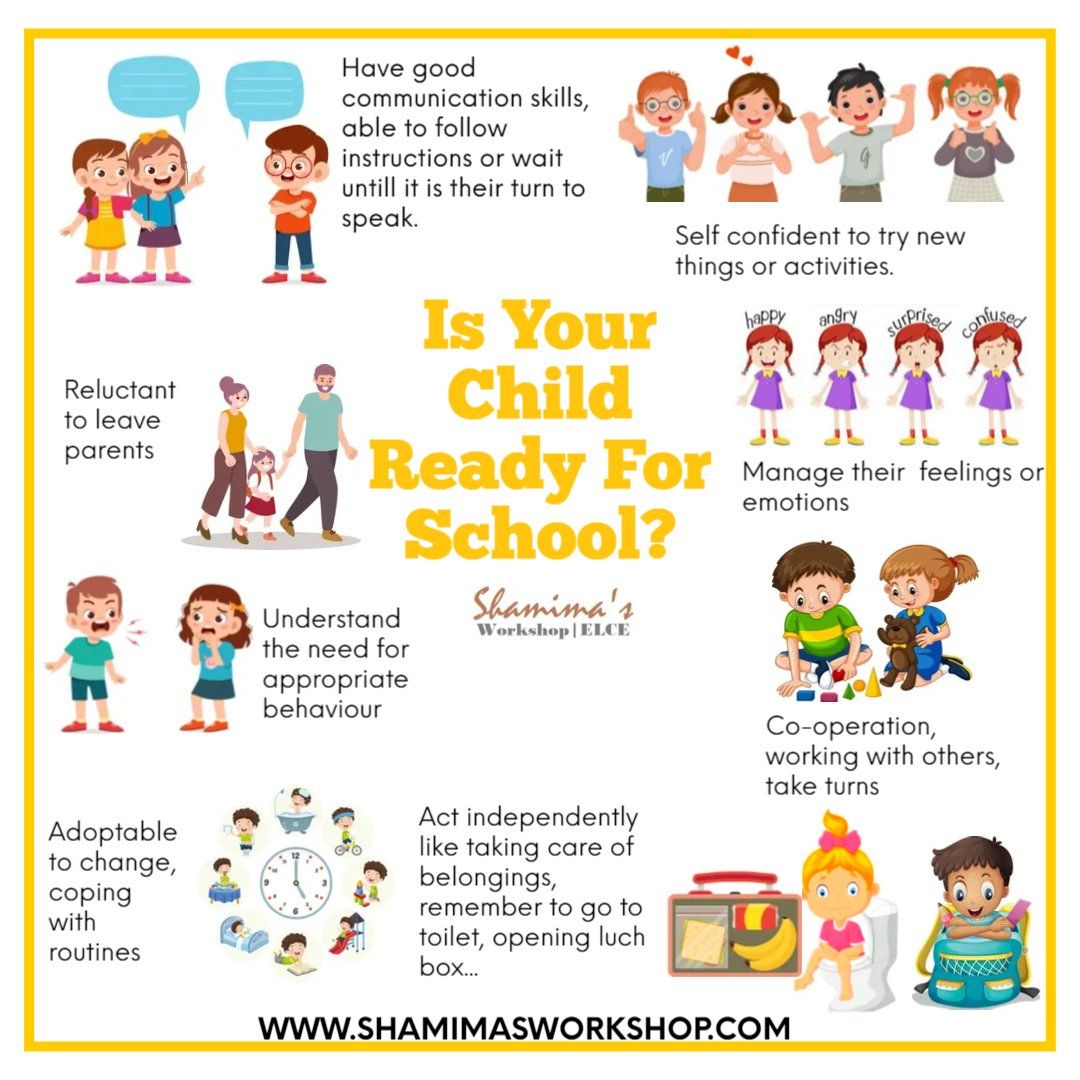
It is important to think about children's developmental needs. Some children will find the transition easier or more difficult depending on their own experience. Read FACTORS AFFECTING CHILDREN'S READINESS FOR SCHOOL when looking at the kinds of factors which will affect children readiness for school.
Thank you for reading!
Please do let us know what you think in the comments and if you have any further ideas to share…
Welcome
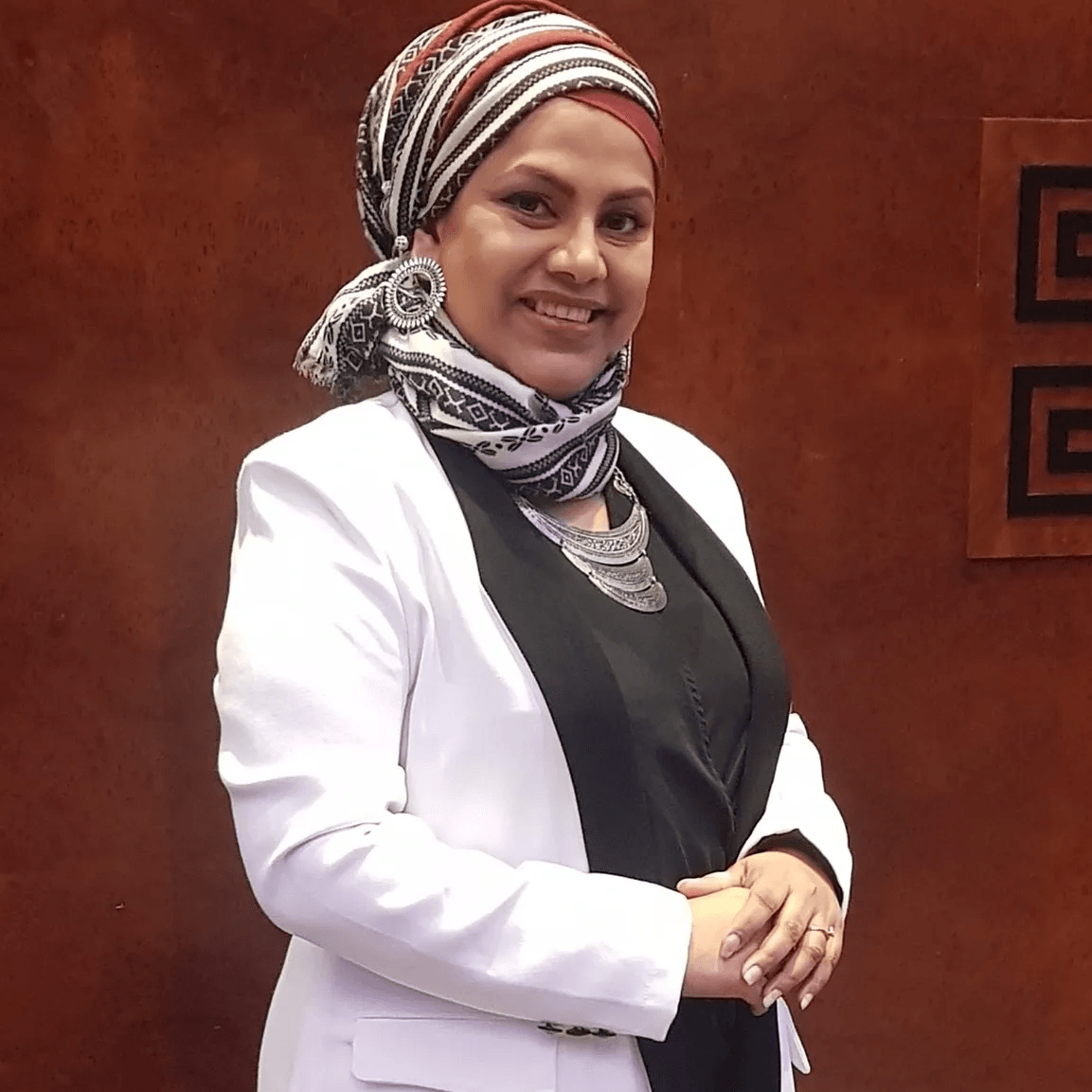
Hi, i am Shamima Fowzee, an early years educator, trainer and consultant. I Share ideas, inspiration, & resources for play-based, inquiry-led learning. Find out more about me here.
SHOP NOW
RECENT POST
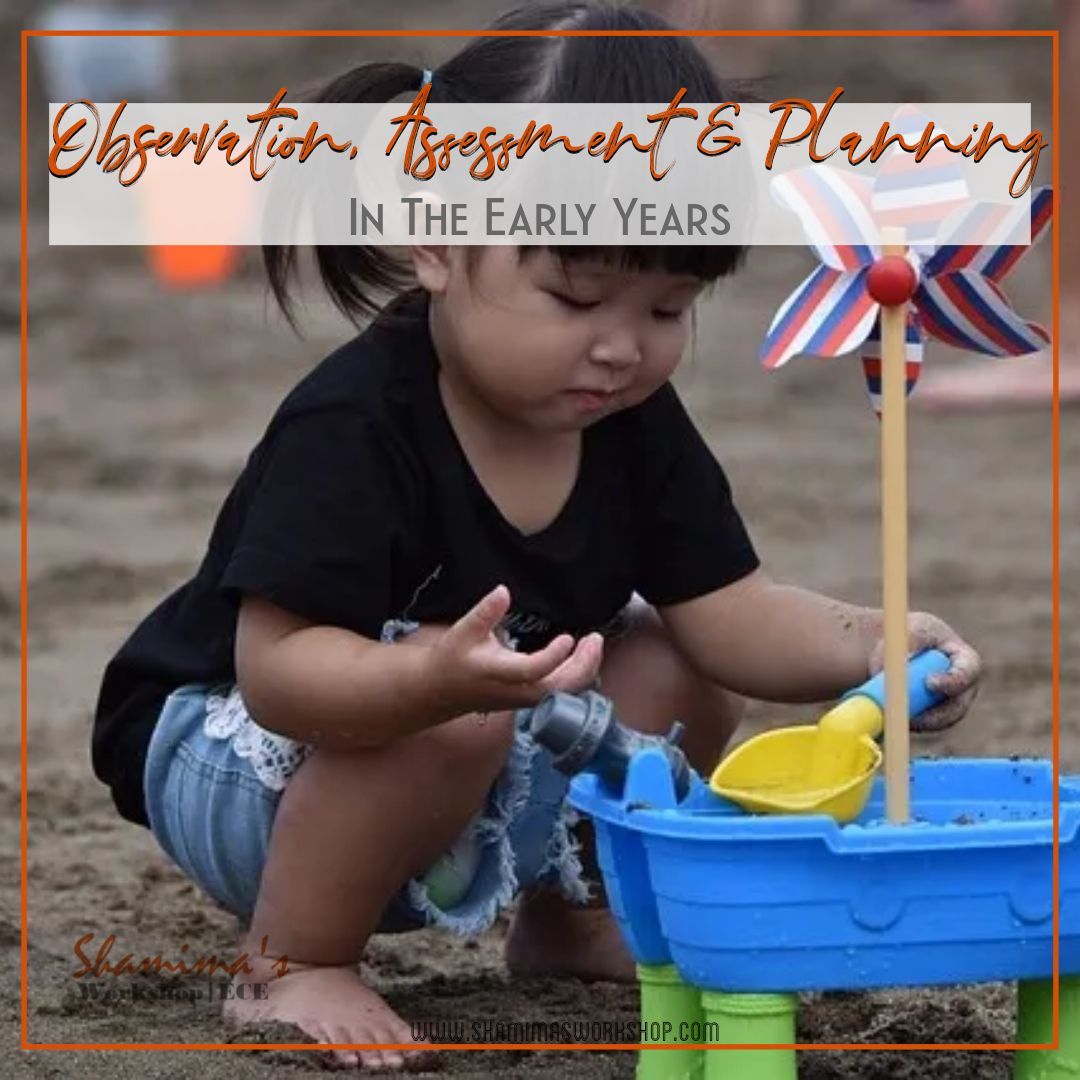
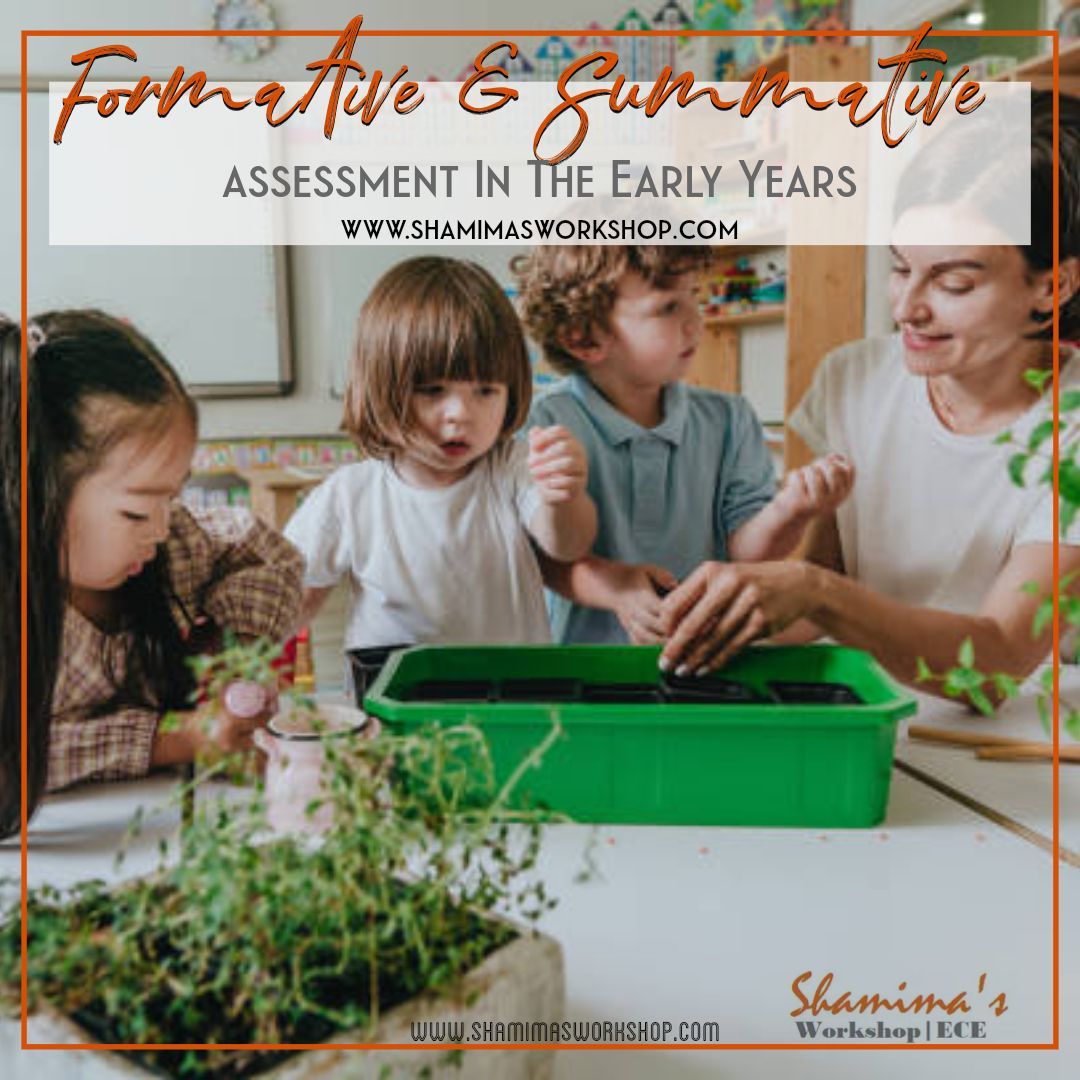
How can I thank you? Spread the word!
For everyone who is passionate about the importance of Early Years.

